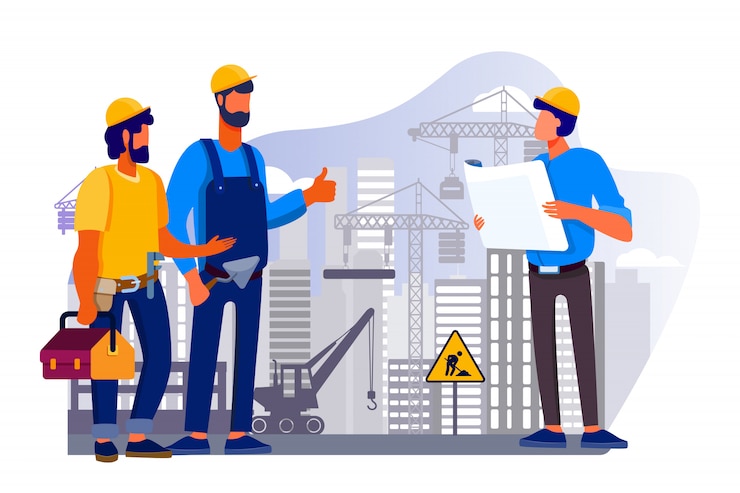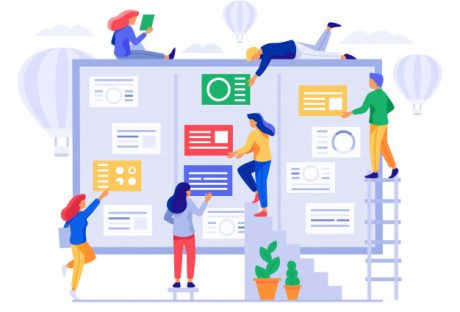Road construction comes with many risks of injury. Some of the causes include dangerous equipment, the risk of collision, falling objects, and exposure to harmful objects.
Before starting road construction, identifying all potential hazards in the work zone can minimize the risk of injuries.
Hazards include things like oncoming traffic, pedestrian walkways, and power lines. The weather should also be taken into account when starting construction.
Top 7 Road Construction Safety Tips

Here are some tips to follow to ensure a safe road construction project.
1. Control Traffic
Not many people follow traffic rules and it may lead to accidents even without road construction. So special care should be taken when you start working on a road. Make sure to mark the construction zone properly with barriers and cones.
It is also crucial to place a warning sign before the zone to alert the incoming driver. At night it is preferable to use neon-colored traffic zones to make them more visible.
2. Create a Site Safety Program
To ensure the safety of the workers, it is crucial to implement a site safety program. The staff should be given occupation safety training. Make them aware of the potential hazards and how to use certain equipment to minimize injuries.
Most importantly, contractors should be well-equipped with advice on how to deal with emergency situations when the on-site manager is not around.
3. Avoid Blind Spots
On a construction site, it is common to find vehicles and heavy equipment moving around constantly. Although many sites use the best water carts by TTi Water Trucks on the same truck to minimize the use of vehicles, there is still a need to avoid traffic in the construction zone.
Operators should make sure to all visual aids and devices are attached, and alarms and lights are working properly on equipment. For workers who are walking on the site, make sure to stay in visual contact with any drivers. The drivers operating the vehicles usually have a limited range of sight when driving.

4. Use Personal Protection Equipment
Just like other construction projects, PPE should be worn by the staff when working inside the construction area. Even if visiting for an inspection, it is necessary to wear basic PPE such as a helmet and vest to avoid any risk of falling objects.
Some common pieces of personal protection equipment include steel-toed boots, hard hats, highly visible clothing, and headphones for noise protection.
Especially at night, site workers should wear a jacket or vest with fluorescent orange or lime yellow reflective material. It can allow others to see that someone is at work even from far away.
5. Use Caution for Heavy Machinery
When using heavy machinery, more steps should be taken to ensure the safety of the operator and everyone else on the site.
Below are some precautions for operators to follow:
- Apply brakes when vehicles are not in use.
- Wear a seatbelt at all times.
- When the machine is parked on an inclined path, put a block around the tires.
- Check the mirror at all times.
- Use a spotter when unloading and loading equipment.
6. Stay Hydrated
When workers perform construction during the day they are more exposed to heat. This is why they are more susceptible to heat-related illnesses. Therefore, they also get dehydrated quickly compared to others. Workers should drink plenty of water and fluids like sports drinks and coconut water.
On extremely hot days, work should be stopped to avoid health problems like heatstroke and heat exhaustion.
7. Hire a Safety Manager
Lastly, you need someone who is competent in handling and monitoring safety requirements. A safety manager should be able to identify existing and predictable hazards in the surroundings.
They can then identify the hazardous or unsanitary working conditions for the employees.

Additionals:






















